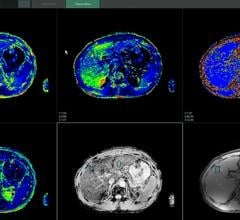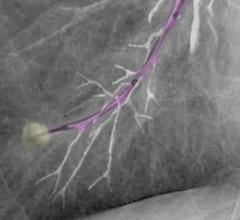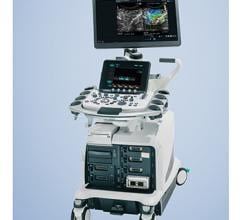
Several diseases that require the use of endoscopy devices for diagnostics, as well as therapeutics, have been on the rise across various countries. The clinically unmet demands of such diseases in developing nations have resulted in a flourishing growth for the global endoscopy devices market. There have been several technological advancements in endoscopic devices, and this has further increased the potential for the entire industry. The product manufacturers in the endoscopic devices market find the emerging economies of Asia-Pacific very lucrative in the next few years.
There are several factors driving the market ahead in the race. Healthcare expenditures across the world are mounting, as reigning governments are investing in better health infrastructures. The use of endoscopy devices has gained swift popularity in diagnosis and therapies of several diseases. A large number of patients are choosing to opt for various endoscopic devices for treatment as it enables minimally invasive surgeries. It has found many takers as it facilitates a shorter recovery time due to its minimal post-operative complications.
The global endoscopy devices market has established itself as a very potent industry. The significant growth statistics revealed by analysts at Allied Market Research are a testimony to its rapid progress. The entire endoscopic devices market is expected to exhibit a compound annual growth rate (CAGR) of 5.7 percent during the period 2016–2022. This is projected to reach a value of $40.8 million by the end of the forecast period.
Capsule Endoscopy to Aid in Gastroenterology
The use of endoscopic devices in the diagnosis of major infections and diseases has become a staple for surgeons and doctors. A device that can aid in the viewing of internal organs and capture images which can be used for timely and accurate diagnosis of diseases, as well as aid in delivering drug therapies is the need for major surgeries and treatments. The traditional endoscopic devices tended to be cumbersome and involved discomfort for the patient for prolonged periods of time, as the device plunged into the digestive tract and scanned the entire of the gastrointestinal tract.
However, capsule endoscopy has opened new avenues for the field of endoscopy with its revolutionary small, capsule-sized device that can be ingested by the patient and travel all along the tract. The capsule is fitted with a minuscule camera that will capture high-precision images of the small intestine with minimal invasiveness. The capsule endoscopy technology enables better navigation through the tract and show up bleeding, cancerous growths within the intestine, or even detect ulcers.
The branch of gastroenterology is set to gain significantly with the employability of capsule endoscope devices fitted with small cameras as well as targeted drugs to treat the given casualty. It will allow surgeons and doctors to detect real-time ulcers and abnormal growths within the tract and treat them with precision. Overall, the capsule endoscopy segment is set to grow at a CAGR of 8.7 percent during the period 2016–2022, thus ensuring better patient outcomes with timely diagnosis and therapy.
FDA Approval Prove Favorable for the Industry
Any company or business engaged in the production and development of medical devices are constantly in the race to develop innovative and cost-effective products for bettering patient outcomes in healthcare. It is imperative for most products to clear the clinical testing phases set by the FRDA for gaining the required approval to market their products in the industry. In such a scenario, any approval or reimbursement scheme/funding by the FDA goes a long way in encouraging the advancements in the industry.
There have been certain hygiene issues related to the use of gastrointestinal scopes, or more commonly known as duodenoscopes, in hospitals and surgeries. These endoscopes, fitted with cameras and sensors to detect infections in the digestive tract of patients need to be sterilized and disinfected after every use. However, there have been several hygiene issues arising of late that are proving cumbersome and infectious for the further use of these endoscopes in multiple patients.
This is why the FDA, recently, approved the use of disposable endoscopes, which can eliminate the possibility of medical scope-transmitted infections. The two new endoscopes, which have been approved, are a part of an invention by a German company, Invendo medical GmbH. The new devices offer a sterile option for overcoming the challenge of cleaning and reprocessing. According to the FDA, the disposable endoscopes are for one-time use in a single procedure, and are not to be reused or sterilized again. With such advancements, the endoscopic device market is set to witness greater progress as more and more medical companies will expand the scope of their operations by including more innovative products in their offerings.
The competitive landscape of the industry is extremely promising. Companies, such as Hoya, Boston Scientific, Olympus, Conmed, Medtronic and Johnson & Johnson are investing heavily in different R&D projects for the development of more minimally invasive and innovative endoscopic devices. These strategies will ensure a dynamic competition in the market and promise major potential for growth in various regions of the world. By bringing out better diagnostics and therapeutics in various branches of medicine, the endoscopic devices market is set to scale new heights in the immediate future.
For more information: www.alliedmarketresearch.com/endoscopy-devices-market


 December 23, 2019
December 23, 2019 








